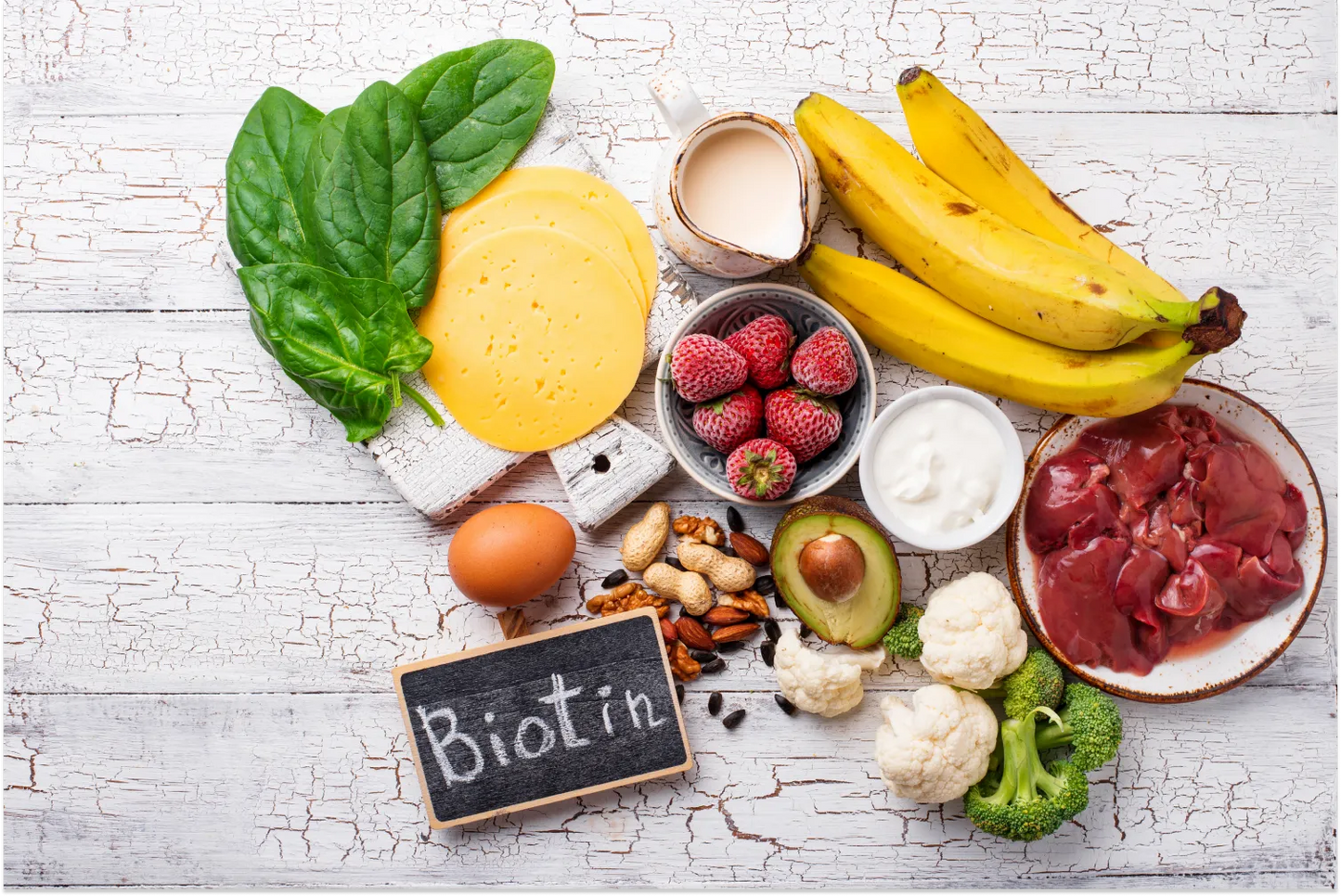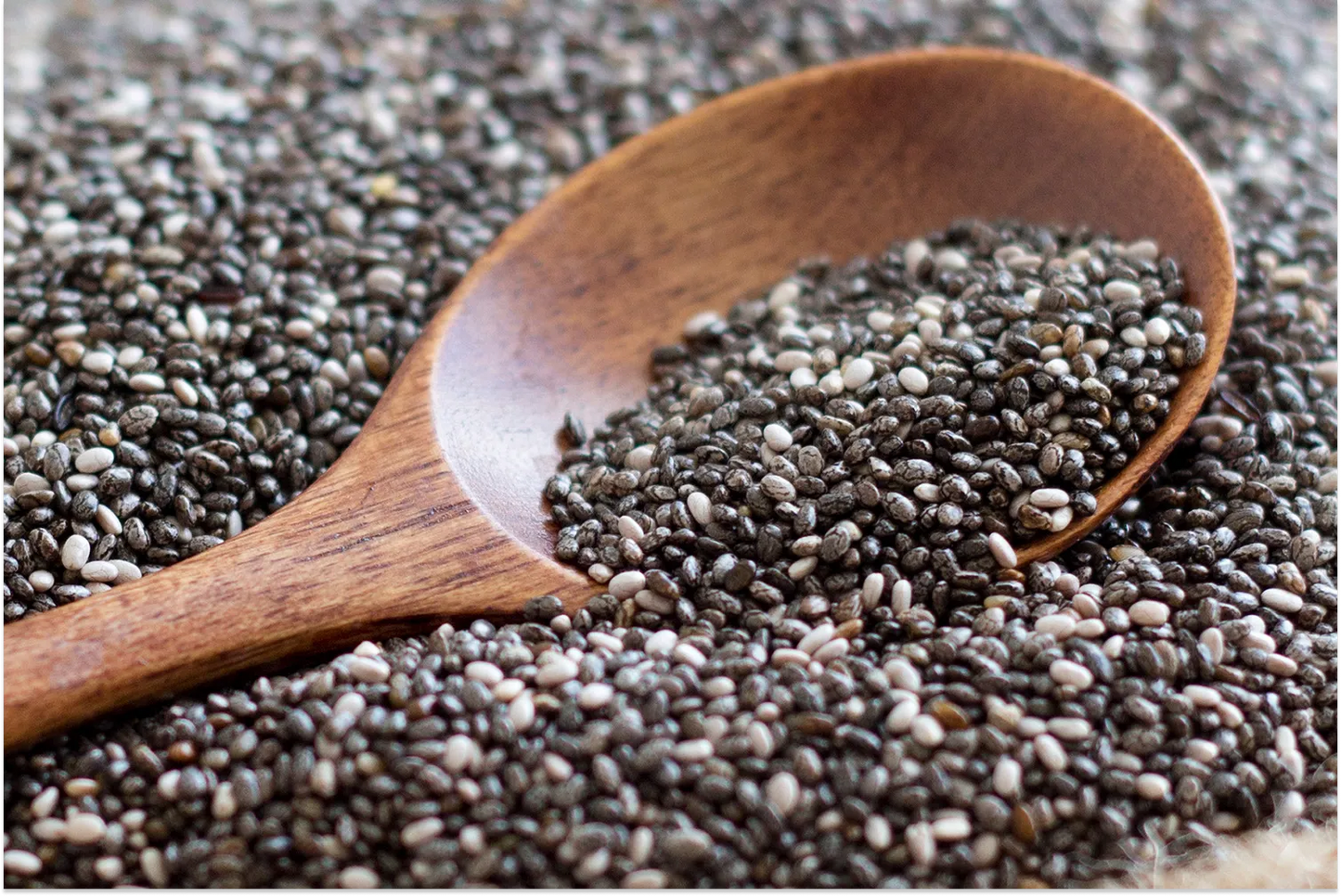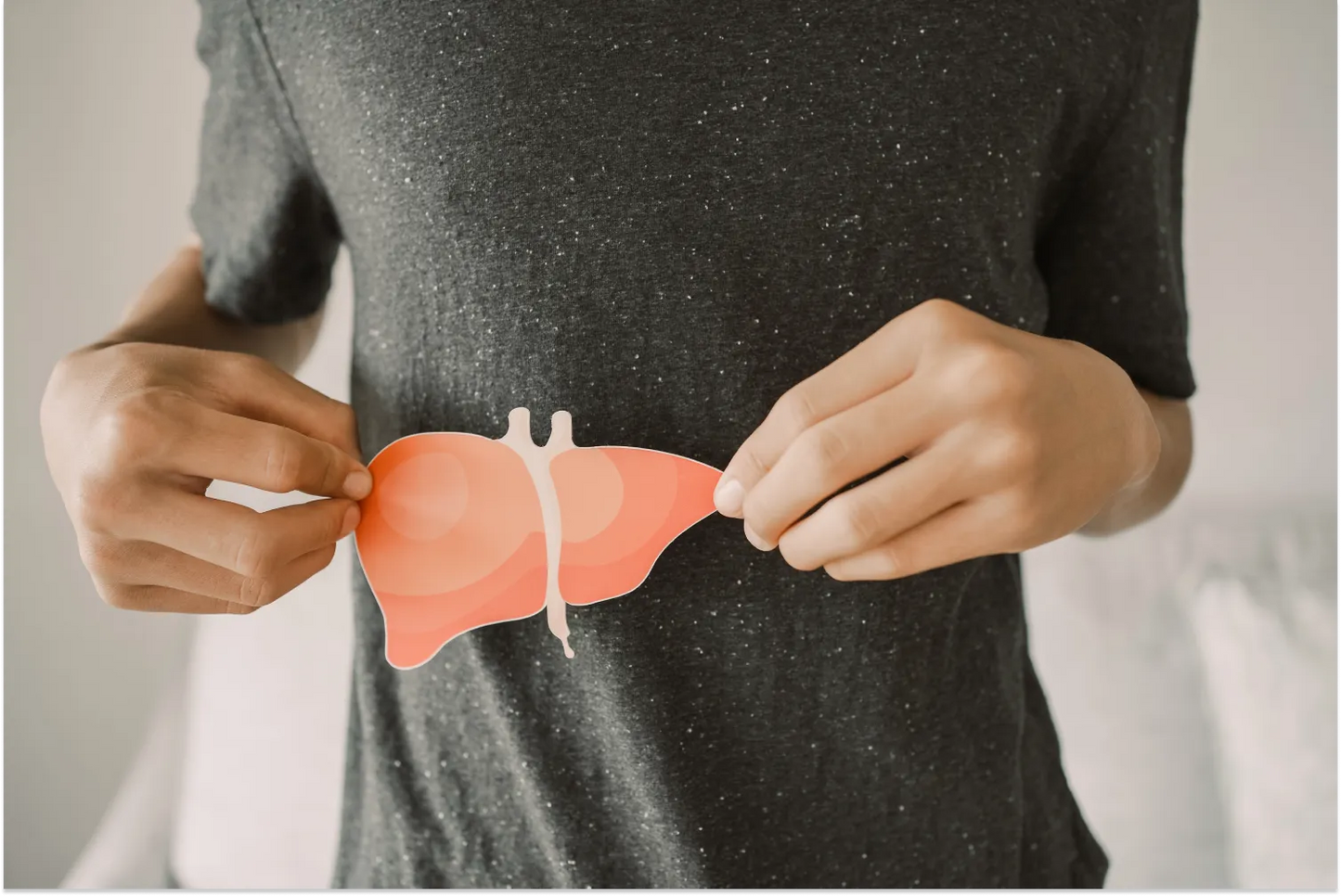
How Much Biotin Can You Have Per Day?
We've all found ourselves in this situation — staring at the back of a multivitamin bottle, our eyes scanning the long list of vitamins and minerals, wondering about their benefits and how much we should really take.
Biotin, or as some may know it, vitamin H, is one such nutrient that's been garnering a lot of attention lately. You might be wondering what exactly it is and how much of it we should include in our daily intakes.
Let's unravel the mysteries of biotin together.
What Is Biotin and Why Is It Important?
Biotin, scientifically known as vitamin B7, is a water-soluble vitamin that holds a significant place in our bodily functions. As part of the B vitamin family, its primary role revolves around converting the food we consume into energy that our bodies can use. However, there is so much more to this vitamin.
Supports the Metabolism
Biotin acts as a helping hand for various digestive enzymes, aiding in breaking down carbohydrates, proteins, and fats. This process supports efficient metabolism and energy production, enabling us to go about our day with vitality.
Encourages Skin, Hair, and Nail Health
Are you dreaming of luscious, healthy hair, flawless skin, and strong nails? Biotin could be your secret weapon. The use of biotin has been recognized for promoting hair growth as well as maintaining skin and nail health, often being the go-to solution for individuals dealing with thinning hair or brittle nails.
Supports a Healthy Blood Sugar
Biotin also has a role to play in supporting healthy blood glucose levels. This can be particularly beneficial for those focusing on blood sugar regulation, a key aspect of overall well-being.
Bolsters the Nervous System
The optimal functioning of our nervous system can be supported by adequate biotin intake. This ensures neurotransmitters, the chemical messengers of the body, work optimally, maintaining our body's balance.
Supports Liver Health
Our liver, the body's detox powerhouse, is supported by biotin. Biotin aids in its essential functions, reminding us of the interconnectedness of our bodily systems.
Breastfeeding
For breastfeeding mothers, biotin comes to the rescue by supporting lactation. This ensures the baby receives essential nutrients, laying the foundation for their growth and development.
What Causes Biotin Deficiency?
Although a deficiency in biotin is relatively uncommon for people following standard American diets, it can be caused by several factors.
Dietary Factors
Consuming raw egg whites over a prolonged period can lead to a biotin deficiency. The reason is that raw egg whites contain a property known as avidin. This protein binds to biotin and inhibits its absorption, preventing the body from being able to use it efficiently.
Genetic Disorders
Some inherited disorders can affect the body's ability to metabolize and utilize biotin effectively. Disorders like biotinidase deficiency and holocarboxylase synthetase deficiency fall into this category.
Alcoholism
Chronic alcohol consumption can lead to a decrease in biotin levels within the body. This is because alcohol reduces the body's absorption and utilization of the vitamin, disrupting normal levels.
Smoking
Research has shown that smoking may speed up biotin catabolism, particularly in women. This essentially means it breaks down biotin faster than non-smokers, potentially leading to a deficiency.
Long-term Use of Certain Medications
Some medications, particularly anticonvulsants and long-term antibiotics, can interfere with biotin absorption, leading to lower biotin levels over time.
Pregnancy and Breastfeeding
The demands of pregnancy or breastfeeding can cause a decrease in biotin levels. However, this is usually counteracted with prenatal vitamins that contain biotin to support both mother and baby.
Malabsorption Disorders
Medical conditions that affect nutrient absorption, such as Crohn's disease and celiac disease, can lead to a biotin deficiency as the body struggles to absorb the necessary nutrients from food.
What Are the Symptoms of Biotin Deficiency?
For many of us, the first signs of a nutritional deficiency can be subtle and challenging to identify. That said, here are some symptoms of biotin deficiency:
- Hair loss: We all lose a few hair strands daily, but if you notice a significant increase in hair loss that borders on alopecia, then it may be due to a lack of biotin.
- Skin rashes: Red, scaly rashes, particularly around the eyes, nose, and mouth, can be warning signs of low biotin levels.
- Fungal infections: A compromised immune system resulting from biotin deficiency can make you more susceptible to fungal infections.
- Brittle nails: If you find that your nails break easily, it might be time to check your biotin levels.
- Digestive issues: Biotin plays a vital role in producing enzymes that aid digestion. A deficiency in biotin can, therefore, lead to digestive discomfort.
- Neurological symptoms: Symptoms such as lethargy, hallucinations, and numbness can be associated with low biotin levels.
- Conjunctivitis: Red, watery eyes can be a less common symptom of biotin deficiency.
How Much Biotin Can You Have Per Day?
When it comes to the recommended dietary allowance (RDA) of biotin, adults should generally aim for 30 mcg (micrograms). However, pregnant women have a slightly higher need for biotin and so an adequate intake means getting at least 35 mcg for these women. It's important to remember that everyone's nutritional requirements can vary, and these recommendations serve as a general guideline.
Ensuring that you’re getting enough biotin daily is one of the best ways to avoid any adverse effects of a deficiency. However, there is such a thing as biotin toxicity that can occur when you consume too much.
What Happens if You Eat Too Much Biotin?
While biotin is typically regarded as safe — given its water-soluble nature that allows the body to flush out the excess — there can be such a thing as too much of a good thing. High doses of biotin can cause skin rashes, digestive issues, high blood sugar, and allergic reactions.
High levels of biotin can also interfere with lab test results, including those measuring troponin. This marker is commonly used to diagnose heart attacks, and the biotin interference can potentially lead to a misdiagnosis.
What are the Best Food Sources of Biotin?
For those who enjoy obtaining their nutrients the old-fashioned way — from the foods they eat — you're in luck. A variety of highly popular and common foods are generously endowed with biotin.
These include the following:
- Organ meats
- Egg yolks
- Nuts and seeds
- Salmon
- Dairy
- Avocados
- Sweet potatoes
- Spinach
- Cauliflower
- Whole grains
What Should You Consider Before Taking Biotin Supplements?
Before you reach for that bottle of biotin supplements on the shelf, there are several considerations to ponder.
First of all, consider if biotin supplements are necessary for you. It's essential to consult with a health professional for sound medical advice before beginning any supplement regimen. They can guide you based on your unique health needs and lifestyle factors.
More isn't always better, especially when it comes to supplements. Stick to the recommended levels unless advised otherwise by a healthcare professional. Excessive intake may lead to unintended side effects.
And remember that not all supplements are created equal. Ensure that the supplement you choose meets the FDA (Food and Drug Administration) guidelines for quality and safety. Look out for third-party testing or certification to make sure you're getting a high-quality product.
Finally, biotin might interact with certain medications, altering their effectiveness. Always inform your healthcare provider about all the supplements you're taking to avoid any potential interactions.
The Bottom Line
As you can see, biotin plays an essential role in numerous bodily functions, from energy metabolism to maintaining hair health. While biotin deficiencies are rare, they can occur, and it's important to recognize the signs. Addressing any nutrient gaps in your diet or lifestyle is important for maintaining optimal health.
Before resorting to supplements, consider natural dietary sources of biotin. Foods like liver, salmon, egg yolks, and avocados are rich in this vital nutrient and can be easily incorporated into your daily meals.
If you're considering biotin supplementation, always consult a healthcare professional to ensure it's the right step for you. They can guide you on the correct dosage and help monitor your progress.
For more insights into achieving optimal health and wellness, follow Dr. Kellyann on social media and check out our blog. By doing so, you can dive deeper into the world of holistic and natural nutrition, learn more about the benefits of traditional healing foods, and empower yourself with the knowledge to take control of your health.
Sources:
Biotin – Vitamin B7 | The Nutrition Source | Harvard T.H. Chan School of Public Health
Biotin Deficiency | NCBI Bookshelf







